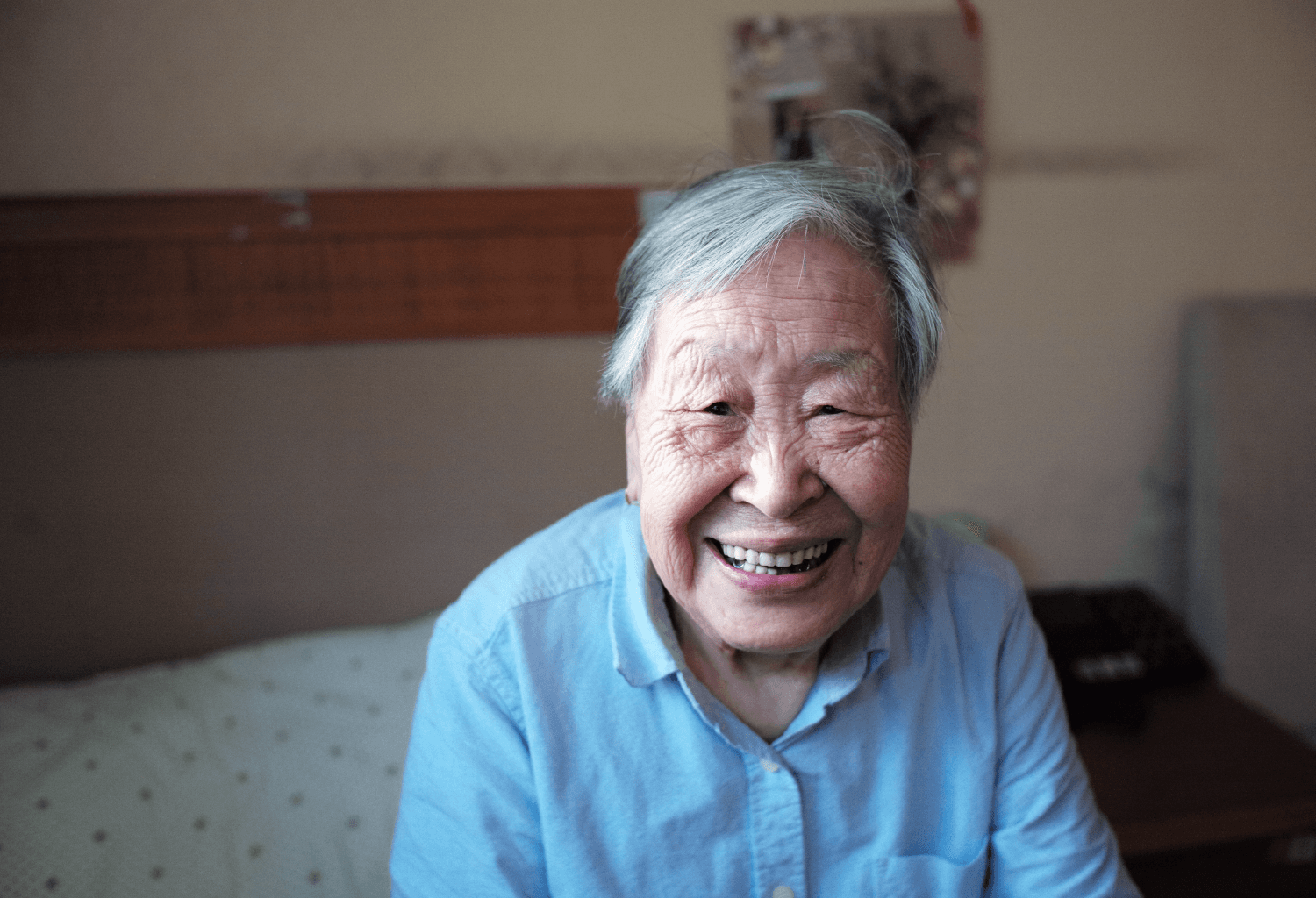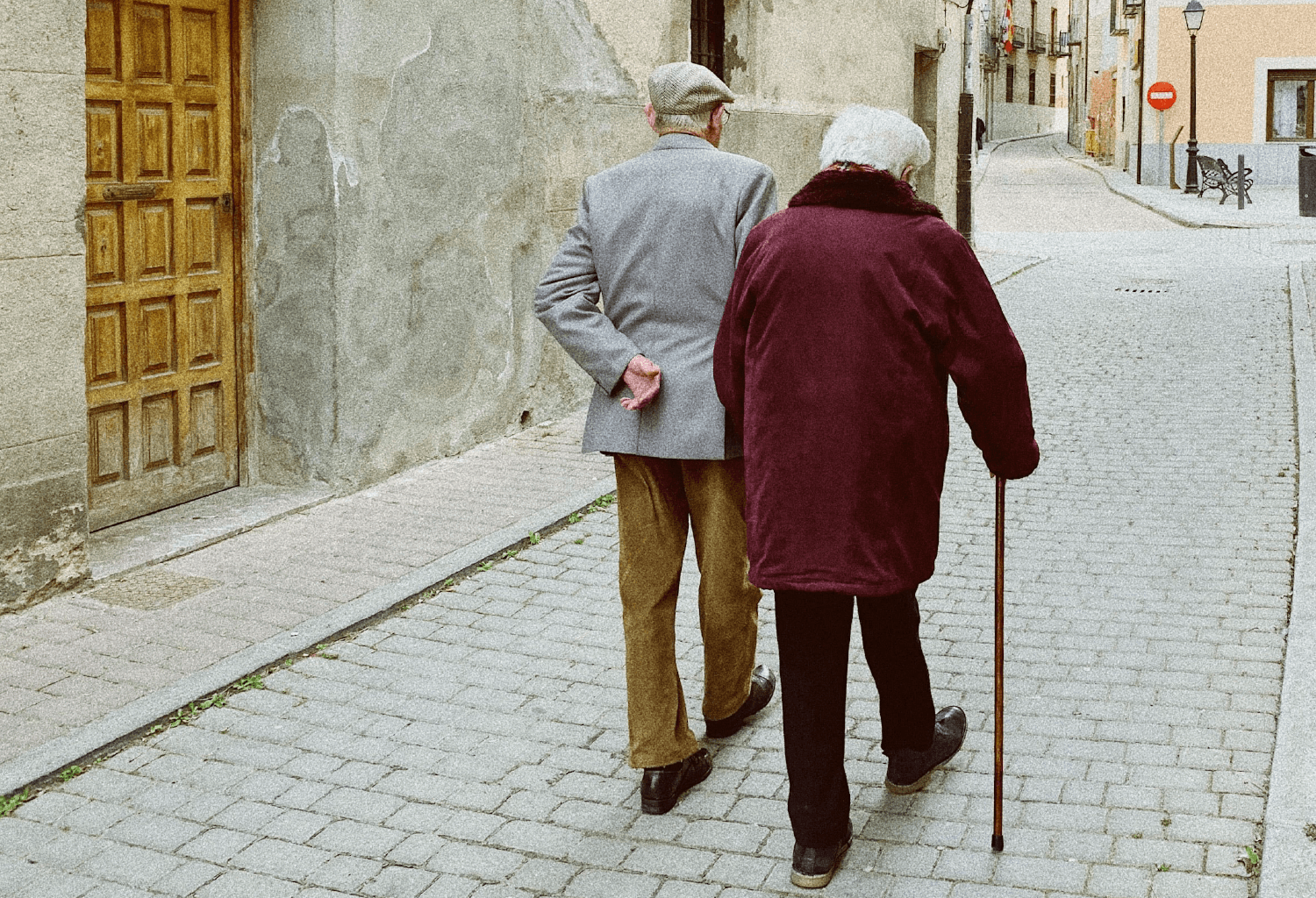Should the focus in healthcare shift? From health to happiness
Age comes naturally, you don't have to lift a finger for it. Unfortunately, we can't say the same for aging healthily. Making sure to exercise enough, getting a good night's sleep, watching what you eat - it can certainly keep you busy. But do we pay enough attention to happiness while taking care of our health?
Sara Kate Heide, medical student at the School of Medicine, New York Medical College, spent the last ten years learning more about the quality of life for elderly and how to define this. She finds that defining quality of life is a difficult task, but important nonetheless. If we pay more attention to what makes people truly happy, then we can target our healthcare more to the needs and wishes of elderly. It's almost impossible to find one joint factor that a group of people find important for their quality of life, but there is one factor that does match for all seniors, and that is maintaining their own identity.
Unfortunately, there's little attention for the individual identities of elderly. There are many misconceptions about growing older. Aging is often associated with being sick, dependent, unhealthy and vulnerable. While there are many differences between the individuals in this group. If you work in elderly care you likely already know this, and see this every day. Everyone has their own personality and interests. Not to mention ethnicity, age, religion or professions. Because society looks at old age as if it, by definition, implies dependence and deficiency, we make it very difficult for elderly to accept their identity as seniors. People often only truly feel old if fall ill or can no longer walk properly. Not only young people, but also the elderly themselves have negative associations with old age. In fact, people typically think you're only old when you can no longer do something, and once you are old and vulnerable, that determines your entire identity.
It's important to stop thinking in this way, and to focus on autonomy and safeguarding the individual senior's own identity. Quality of life can only be guaranteed if the elderly, despite possible limitations, can undertake activities that confirm their own identity. To do this, it's also of importance to adapt activities for the user, for example, you have glasses for reading, a stick for walking and Bike Labyrinth to be able to continue cycling independently.
Heide speaks with a lot of elderly about their quality of life and what makes them happy. In her work she shares these stories, in which it becomes clear that seniors still enjoy their life to the fullest, despite their limitations, thanks to their family, friends and hobbies. One of these stories is the story of Lorraine.
"Fellow residents referred to her as ‘Tip-Top’. Whenever someone asked Lorraine how she was, she gaily responded “I am tip-top!” This optimism remained even after she sustained injuries from a devastating fall. When Lorraine eventually returned to the poetry club, she was in a wheelchair and had bandages on her head. Nonetheless, she eagerly volunteered to read her new poem aloud: “Today it’s waffle and tea. I felt very happy. Also, there were blueberries. They looked very snappy”. Lorraine’s cheerfulness suggests that age and disability cannot be easily correlated to life quality. This challenges the method by which the current healthcare system operates. Too often, healthcare focuses on treating the disease rather than treating the person."
Heide wants to shift the focus to what elderly can do and what they find important in life. For example, elderly who used to enjoy cycling every day. For them, Bike Labyrinth can be a solution to be able to keep this hobby and therefore a part of their identity. Finding the balance between unpleasant things that come with aging and things that bring a person happiness is key for the quality of life. Heide concludes in her article that in an effort to create a more effective healthcare system, we must work together towards a future in which the elderly retain their identity and can continue to enjoy the beautiful things in life.
2516 BE The Hague, NL
info@bikelabyrinth.com
+3170 737 1152
By using this website you agree to our privacy policy.



